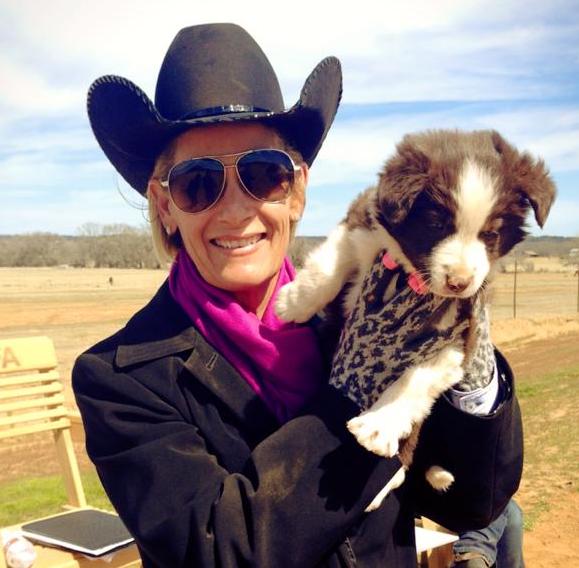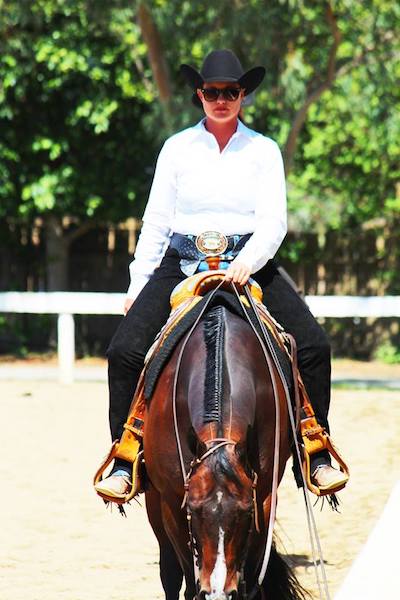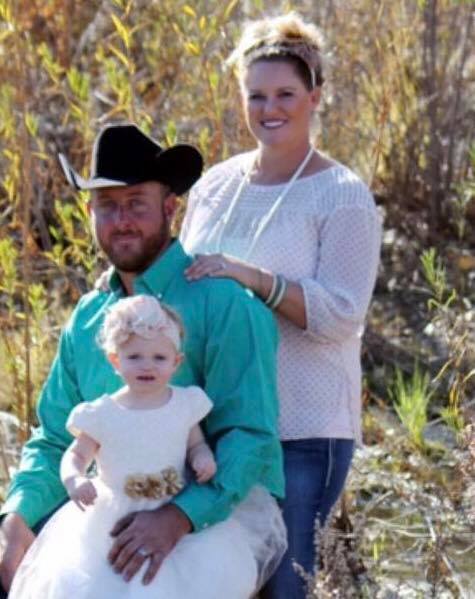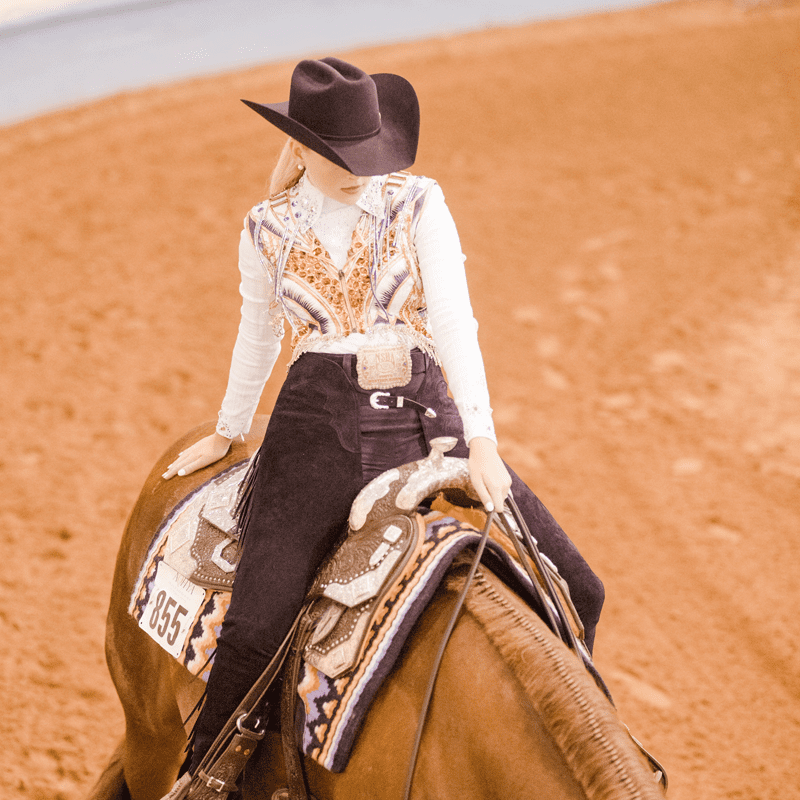Perhaps you have just decided to send your horse to a trainer or you have decided to switch to a different trainer. Starting at a new camp can be exciting and nerve-wracking at the same time.
We live in a world where we all want a quick fix and to see results fast. When someone decides to move to a different trainer or send their horse for the first time into a program, patience and communication are critical.
We spoke with a few of the industry’s preeminent all-around trainers about what to expect when entering a new regimen – AQHA Professional Horsewoman, Karen Graham of Cave Creek, AZ and World Champion Trainers, Jennifer and Justin Wheeler of Wheeler Performance Horses based out of Hollister, CA.
The Evaluation Period
 Just like any professional test or study, a baseline must be established before goals can be set. Graham shares her insight for people looking to move to a new trainer, “When I get a new customer, we first sit and talk about what his or her expectations are. I usually ask for thirty days to evaluate the horse to see if the expectations can be met.” This is a good time for owners to clarify what they ultimately want to accomplish, and how involved in the process they want to be.
Just like any professional test or study, a baseline must be established before goals can be set. Graham shares her insight for people looking to move to a new trainer, “When I get a new customer, we first sit and talk about what his or her expectations are. I usually ask for thirty days to evaluate the horse to see if the expectations can be met.” This is a good time for owners to clarify what they ultimately want to accomplish, and how involved in the process they want to be.
Jenn Wheeler, a very busy new mother and trainer, agrees that the evaluation period is pertinent, “We are looking to see what the horse’s strengths and weaknesses are and figure out what training it still needs and in what areas. During this evaluation period, we also see if the horse is a good fit for our program and will work with our training style. Then, we sit down with the owner and ask them what their goals for the horse are and also for themselves, and we make a plan to achieve these goals. We spend the first month getting to know the horse and rider more, sometimes fixing an issue or filling in some missing training pieces.”
The Conversation
 Good news is always easy to hear and speak, but the difficult conversations are often the most productive when achieving one’s goals. After the evaluation period, an owner can expect to have what, hopefully, is a productive discussion with their new trainer about the results. Much like a parent-teacher interview, the most success will come out of both parties being open-minded, attentive listeners and honest.
Good news is always easy to hear and speak, but the difficult conversations are often the most productive when achieving one’s goals. After the evaluation period, an owner can expect to have what, hopefully, is a productive discussion with their new trainer about the results. Much like a parent-teacher interview, the most success will come out of both parties being open-minded, attentive listeners and honest.
Graham, a multiple NSBA World Champion trainer, explains, “I feel it’s most important to be honest about the situation. Owners may not want to hear my opinion, but, in the end, they will be happier. The trust has to be built up. Once they trust my opinion, I can produce. If not, they should find another trainer.”
Wheeler concurs, “When we get a horse in that, after the first 30 to 120 days, just isn’t a great fit for the owner, we let them know if we think a change in horse needs to be made. We aren’t in the business of taking someone’s money if their end goal is unachievable. We either find a horse that is a better fit for them or, if they need a second opinion or program change, we refer them to another professional horseman that we feel would be a good fit. We want people to be happy with the job we do and having this kind of integrity keeps good business relationships for a long time.”
Honesty is the Best Policy
 Not only do trainers have a professional responsibility to be honest with their clients, but owners also need to be able to voice their concerns. Wheeler explains, “If the client has communicated their needs and wants to their current trainer and still feels like they have to make a different choice for themselves or their horse, then I would suggest they let their current trainer know they want to make a change first. Every trainer works hard to try to do things the way they know how, and they all deserve to know what an owner is doing with their horse and why. It’s an owner’s responsibility to talk to their trainer to try to work together for their horse, so I always suggest making sure they’ve done their part.”
Not only do trainers have a professional responsibility to be honest with their clients, but owners also need to be able to voice their concerns. Wheeler explains, “If the client has communicated their needs and wants to their current trainer and still feels like they have to make a different choice for themselves or their horse, then I would suggest they let their current trainer know they want to make a change first. Every trainer works hard to try to do things the way they know how, and they all deserve to know what an owner is doing with their horse and why. It’s an owner’s responsibility to talk to their trainer to try to work together for their horse, so I always suggest making sure they’ve done their part.”
Wheeler continues, “When choosing a program, I would ask a lot of questions. Many times, I’ve seen people pick the trainer they like or get along with, but maybe that’s not the best fit for the horse. Maybe they pick the best horse trainer for the horse, but they aren’t happy with how they are being coached. Some are unhappy with the trainer’s farrier or care.”
Jen advises, “Go to a show and watch how the trainer treats their horses and clients. Talk to their current clients and ask them their thoughts. Don’t pick the trainer who is inexpensive or the one who wins that day. That doesn’t mean they will be the best fit for you or your horse. We always invite people to our facility to see if they will be happy with where we work and how we work with the horses. We let them evaluate us before we evaluate them. We offer a free lesson or two to see if our coaching styles are what they are looking for. There is a big recipe necessary for a successful horse/client/trainer combo, and you won’t know what you are in for if you don’t get enough information.”
She adds, “Lack of communication is also a huge mistake. I’ve seen a lot of clients and trainers burn bridges for themselves just because talking with each other was too uncomfortable.”
Graham also suggests that clients search for what fits right for both horse and rider. “Every trainer has a program and brings something to this industry. If the program is not what the client is looking for, they should keep looking. I’m a very positive person, so negative people are not a good fit for me.”
Give it Time
 Once the evaluation has been assessed and the conversations have been spoken, now the horse, trainer and rider need time to fit into a program to accomplish growth. Similar to starting a diet and exercise program at a new gym, results may not be overnight or visible instantly. However, it is the commitment, trust and persistence that will produce.
Once the evaluation has been assessed and the conversations have been spoken, now the horse, trainer and rider need time to fit into a program to accomplish growth. Similar to starting a diet and exercise program at a new gym, results may not be overnight or visible instantly. However, it is the commitment, trust and persistence that will produce.
Wheeler emphasizes, “I think a lot of people expect horse trainers to be magicians. We are only as good as the horse we are riding. We can work hard and do our best to make a horse respectful and knowledgeable, but we can’t guarantee you a win every day.”
Do not forget the essential questions about costs and payment procedures. Most trainers are willing to work with people to make it as affordable as possible as long as everyone is on the same page. Wheeler states, “Making a budget is very important, especially for newcomers, which a trainer should also sit down and help their client do. Too many people get “burnt out” financially because they aren’t guided in the right direction by a professional.”
She suggests, “Reach out to the trainer you’ve researched and see if they have openings available for you. Make sure you ask about the board, training and show fees to make sure you are aware of all the expenses. Ask to come to their facility to meet with the new trainer and if possible, bring your horse to be evaluated. Most professional trainers and their clients are welcoming to new barn members and have an open door.”
Graham, the constant optimist, adds, “An open mind and willingness to listen is the best advice I can give a new client. Patience is important as well. Hopefully, a bond of respect will form between a trainer and client that will benefit both. It’s a great experience when it does.”
About the Author: An AQHA Professional Horseman, Mo West, currently lives in Tracy, California. Formerly a high school English teacher for over 15 years, she now pursues her passion. As the assistant trainer at Busick Quarter Horses, she enjoys training, coaching, and showing in all-around events. She is an avid world traveler and loves boats and the water. Fishing is her second favorite activity, and she always has her beloved dog, Crash and her newest, four-legged family members, Boone and Huckleberry at her side whenever possible.
Backdrop photo © Shane Rux








